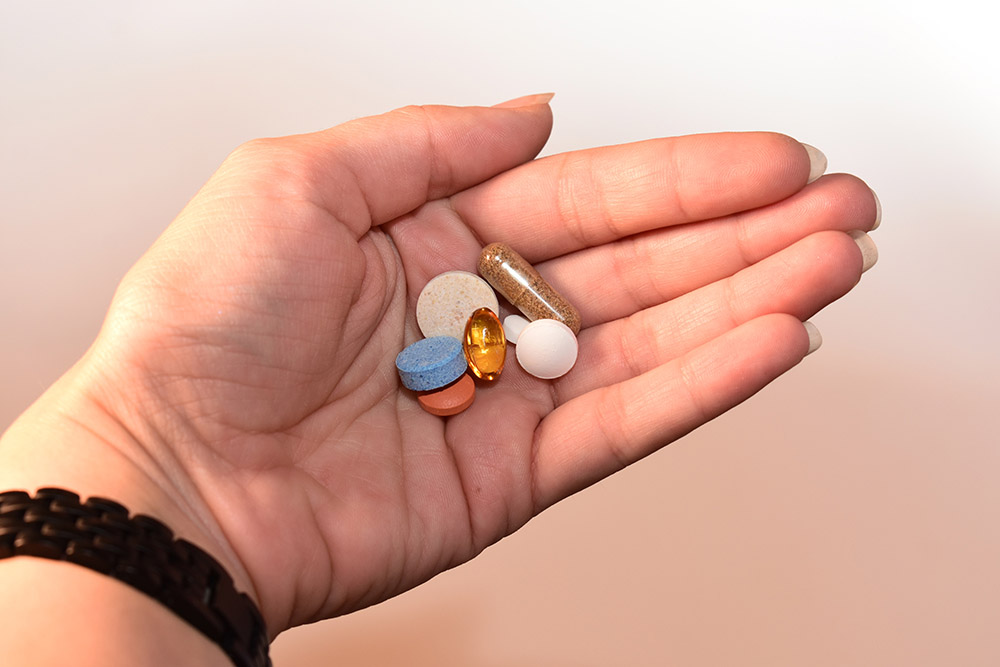Hormonal contraception oral contraceptives are widely used all over the world due to their high availability and ease of use. It turns out that almost 63% of women regularly use these preparations. Hormonal methods are based on blocking the secretion of hormones responsible for ovulation, blocking the release of eggs from the ovaries in the woman’s body. Traditional methods require the woman to take tablets systematically. Currently, there are many types of contraceptives available on the pharmaceutical market, differing in the dose of estrogen and the type of progesterone derivatives. In addition to traditional pills, there are a number of different forms of contraception.

Classification of hormonal contraception
Hormonal contraceptives can be divided into single-component and two-component preparations. Monocomponent are those that contain one active ingredient – progestin, which is derived from progesterone. Two-component preparations, as the name suggests, contain two active substances, which are derivatives of progesterone and estrogen. Among the two-component tablets there are preparations:
- monophasic: there is one type of tablets in the package, each with the same amount of estrogen derivative and progestogen in each tablet
- two-phase: the package contains two types of tablets with different doses of hormones
- three-phase: the package contains three types of tablets that differ in the concentration of hormones
One-component hormonal contraception
The progestogen in the woman’s body inhibits ovulation, ie the release of an egg from the ovary, and thickens the cervical mucus, making it difficult for sperm to “migrate” towards the fallopian tube. Progesterone derivatives are available in the form of tablets, as well as in the form of injections and implants that are applied at longer intervals.
#Tablets are taken every day at a strictly defined time.
#The injections are given every 12 weeks.
#Subcutaneous implants that release synthetic female hormones similar to progesterone, effectively protect against unwanted pregnancy for up to 3 years.
The advantage of single-component hormonal contraception is that it can be used during breastfeeding. It is also used in women who cannot take estrogen and as an emergency contraceptive.
Combined hormonal contraception (classic contraceptive pills)
Estrogen and progesterone derivatives in the mechanism of the so-called feedback, significantly reduce the secretion of hormones stimulating the maturation of ovulatory follicles in the ovaries and preparing the uterine mucosa for embryo implantation. The mechanism of action is therefore similar to that of single-component preparations, but the addition of an estrogen derivative provides better control of uterine bleeding. Two-component preparations also exert the desired estrogenic effect on the female body. They are available in the form of tablets, patches and vaginal rings.
#Tablets are most often taken in the following schedule: 21 days of tablet-taking + 7 days of break.
#The patches are applied on the 1st, 8th and 15th day of the cycle, from the 22nd to the 28th day the patch is not attached. They contain the same hormones as in oral tablets, but in the form of transdermal patches (penetrating the skin).
# The vaginal ring is placed in the vagina for 21 days, with a break for the next 7 days. It is permissible to remove the disc for the duration of intercourse and re-insert it after its completion.
Are IUDs also hormonal contraception?
When writing about hormonal contraception, it is worth mentioning intrauterine devices. We distinguish between intrauterine systems containing copper or systems containing a hormone similar to progesterone – levonorgestrel.
Intrauterine systems with levonorgestrel content are among the most effective methods of contraception. They have a built-in hormone-releasing reservoir, enough for several years. The dose is so small that it does not inhibit ovulation. The hormone causes changes in the uterine mucosa that prevent the embryo from implanting.
Copper IUDs are applied to the uterus and their contraceptive effect, depending on the type, lasts 3, 5 or more years. They don’t release hormones. When using copper inserts, ovarian function is fully preserved and natural menstrual bleeding occurs.
How to choose the best method for you?
In order to choose the right method of contraception, it is worth visiting a gynecologist. After collecting an interview, examining the patient and learning about her preferences, the doctor is able to propose an appropriate preparation. All hormonal contraceptives are available with a prescription.
It is worth knowing that hormonal contraceptives can be helpful in the treatment of acne, pain related to menstruation, abnormal uterine bleeding, premenstrual syndrome, polycystic ovary syndrome or endometriosis. When talking to your doctor, it’s important to be honest about your health problems. Perhaps the preparation will prove to be not only a protection against unwanted pregnancy, but also a remedy for troublesome ailments.
On the other hand, it is necessary to take into account the fact that birth control pills, like other pharmacological agents, have a number of contraindications to use. Hormonal contraception is absolutely contraindicated in pregnancy, in women with breast cancer, in women with otosclerosis (preparations containing estrogens), past or active thrombosis, diabetes mellitus with vascular changes, unstable or treated, but high hypertension, over 35 years of age in women over 35 15 cigarettes a day, in women with thrombophilia and long-term immobilization, and in other rare situations.
ADVANTAGES of birth control pills
- The main advantage of birth control pills is their effectiveness.
- The use of this method gives almost 100% protection against unwanted pregnancy,
- Reversible contraceptive effect,
- Regulation of menstrual cycles,
- Treatment of heavy periods
- Reduction of pain,
- Ability to control the time of bleeding,
- Thanks to regular use, it has a positive effect on the improvement of the complexion,
- Treatment of premenstrual syndrome
- It reduces the incidence of adnexitis
- Prevention of the formation of osteoporosis
Complications of hormonal contraception:
- Mood swings
- Headache
- Dizziness
- Nausea
- Pain and swelling of the breasts
- Thromboembolism
- Myocardial infarction
- Stroke
- Hypertension
- Increased risk of breast cancer, cervical cancer,
- Metabolic complications – diabetes, liver disease, weight gain.
Literature:
Polish Gynecological Society. Recommendations of the Polish Gynecological Society regarding the indications and safety of hormonal and intrauterine contraception. [online]:
Practical Medicine [INDEKS]: NuvaRing [online]: https://indeks.mp.pl/leki/desc.php?id=6912
Practical Medicine [INDEKS]: ellaOne [online]: https://indeks.mp.pl/leki/desc.php?id=7970
Practical Medicine [INDEKS]: Escapelle [online]: https://indeks.mp.pl/leki/desc.php?id=5782
Practical Medicine [INDEKS]: Evra [online]: https://indeks.mp.pl/leki/desc.php?id=4016
Bręborowicz G: Obstetrics and Gynecology. PZWL Medical Publishing House; 2015
Blumczyńska J .: ANTI-clause of conscience, specialization work in pharmacy pharmacy. Poznań 2010 [online]: https://docplayer.pl/18913132-Anty-klauzula-sumienia.html
Want more information from your doctor about hormonal contraception? Try an online medical consultation without leaving your home.

